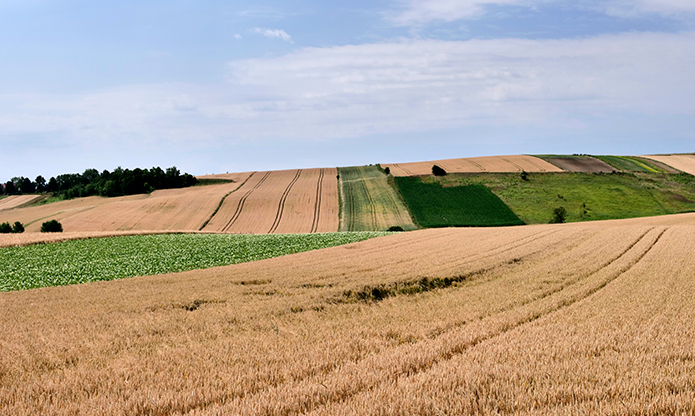Food production accounts for one-third of all human-induced greenhouse gas emissions. By 2050, we need to produce 60% more food on a global scale than we do today. Such an increased production of food entails an increased emission of greenhouse gases and an unsustainable management of our agricultural land that affects the health of the planet even further.
A new research centre will therefore find solutions for how to best understand and utilise the interaction between agriculture and nature. The purpose is to get the most out of our farmlands and at the same time reduce the burden on our biodiversity and climate. The Land-CRAFT centre will develop fundamental research-based solutions with the ability to promote the green transition in agriculture. Five of Denmark’s largest foundations, including the Novo Nordisk Foundation, have joined forces to fund the new centre.
“To make the most of our farmland and reduce the burden on our biodiversity and climate, we must make a significant change in our approach to agriculture. To do that, we need new interdisciplinary knowledge on how we best and most accurately can utilise and cultivate our total agricultural area. Land-CRAFT will help to provide that knowledge,” says Claus Felby, Senior Vice President, Biotech, Novo Nordisk Foundation.
Major challenges – little time to solve them
The centre will have an interdisciplinary approach and work internationally to gain a better understanding of the interaction between agriculture and nature and thus the processes that lead to greenhouse gas emissions from agriculture, and of how these processes play together at landscape level – covering larger areas than the individual field.
Among other things, the centre will develop scenarios for how our landscapes, and thus also our agricultural land, can be utilised in the best possible way. It will help answer questions such as where it will be most beneficial to grow food and which types of data we need to combine to better understand the processes in the soil. The answers to these questions and many more may, for instance, help to pave the way for legislation and regulation that can form the basis for a more sustainable agricultural production.
“There is a strong need to integrate process knowledge on environmental impacts of agriculture with landscape management in order to support the required transformational change of the agriculture sector and to ensure its environmental sustainability. At the same time, it is necessary to enforce the adaptation to climate change to ensure food security. These challenges need to be addressed within a short time period and calls for a centre such as Land-CRAFT. Land-CRAFT represents a unique opportunity, as it will identify and quantify the multiple environmental as well as socio-economic benefits associated with the change of agricultural practices at the farm and landscape scales, thereby having a specific focus on the climate imprint of agriculture,” says Klaus Butterbach-Bahl, who is head of the new centre.
He is highly regarded for his research in biogeochemistry of both natural and managed ecosystems, and he has been a leading force in the development of nitrogen cycling processes, in the understanding of nitrous oxide emissions from land to atmosphere and how to measure and model environmental nitrogen losses and their impacts on ecosystems at various spatio-temporal scales.
Klaus Butterbach-Bahl comes from a position as Head of the Division at the Karlsruhe Institute of Technology in Germany. The German university is one of the international core partners in Land-CRAFT, along with Colorado State University in the US. Together with Aarhus University and University of Copenhagen they will ensure an interdisciplinary and data-driven approach to creating solutions that can help mitigate the greenhouse gas emissions from agriculture, both in Denmark and internationally.
More information about Land-CRAFT
Pioneer Center for Landscape Research in Sustainable Agricultural Futures (Land-CRAFT) is the second of the Pioneer Centres initiated by the Ministry of Higher Education and Science.
Land-CRAFT is established in close collaboration between (and with co-funding from) the Ministry of Higher Education and Science, Danish National Research Foundation, the Carlsberg Foundation, the Lundbeck Foundation, VILLUM FONDEN, the Novo Nordisk Foundation and the five participating universities.
A total of more than DKK 240 million has been allocated to the centre over the next 13 years. The Novo Nordisk Foundation has granted DKK 72.5 million of the total amount.
Find more information about Land-CRAFT here.
Further information
Sabina Askholm Larsen, Communications Partner, +45 2367 3226, [email protected]








